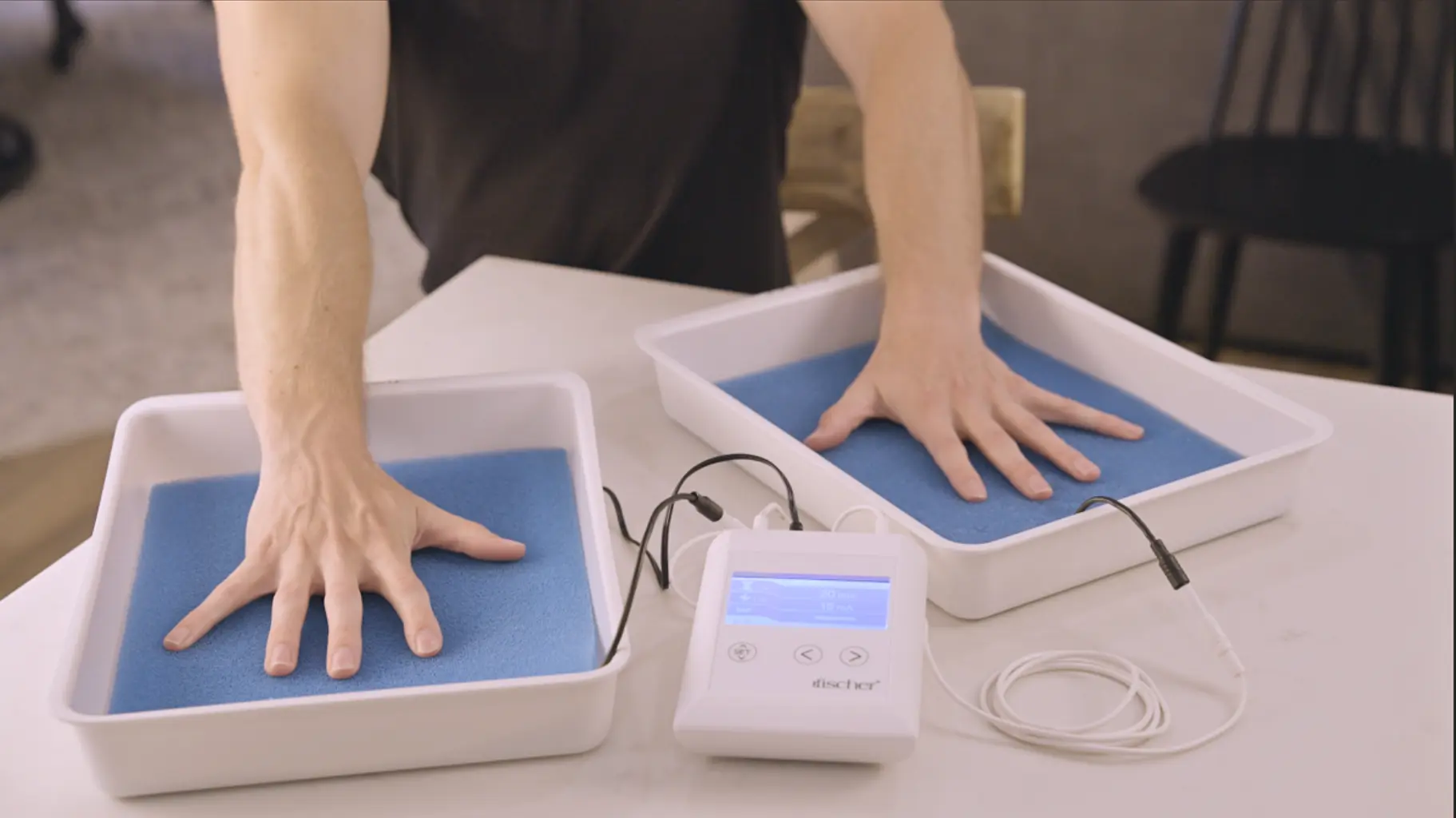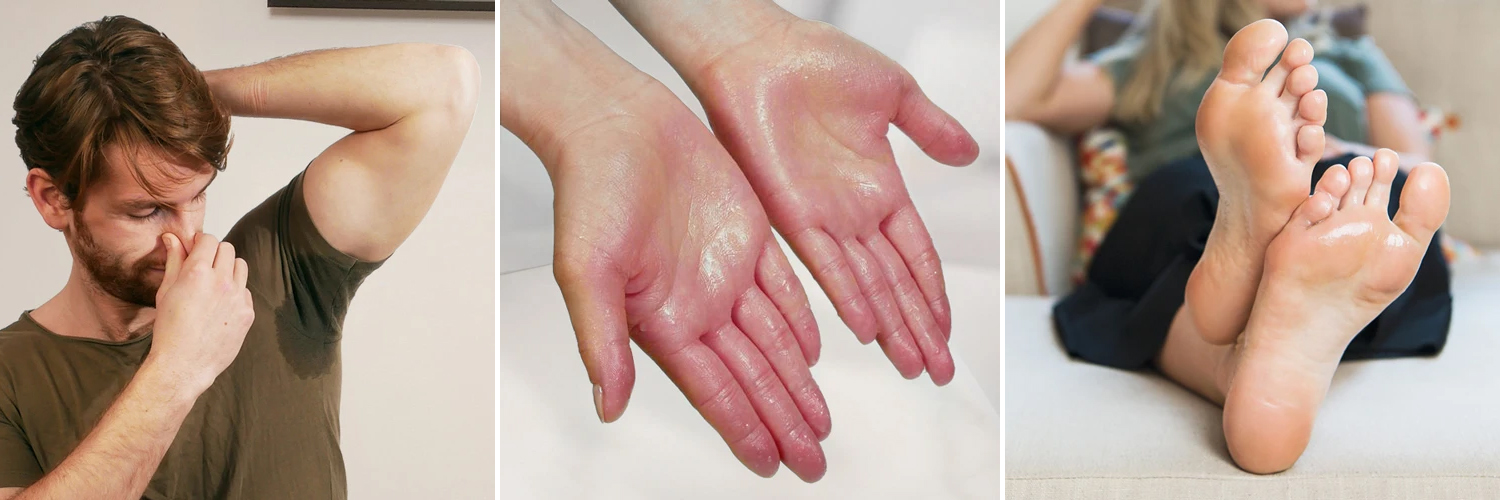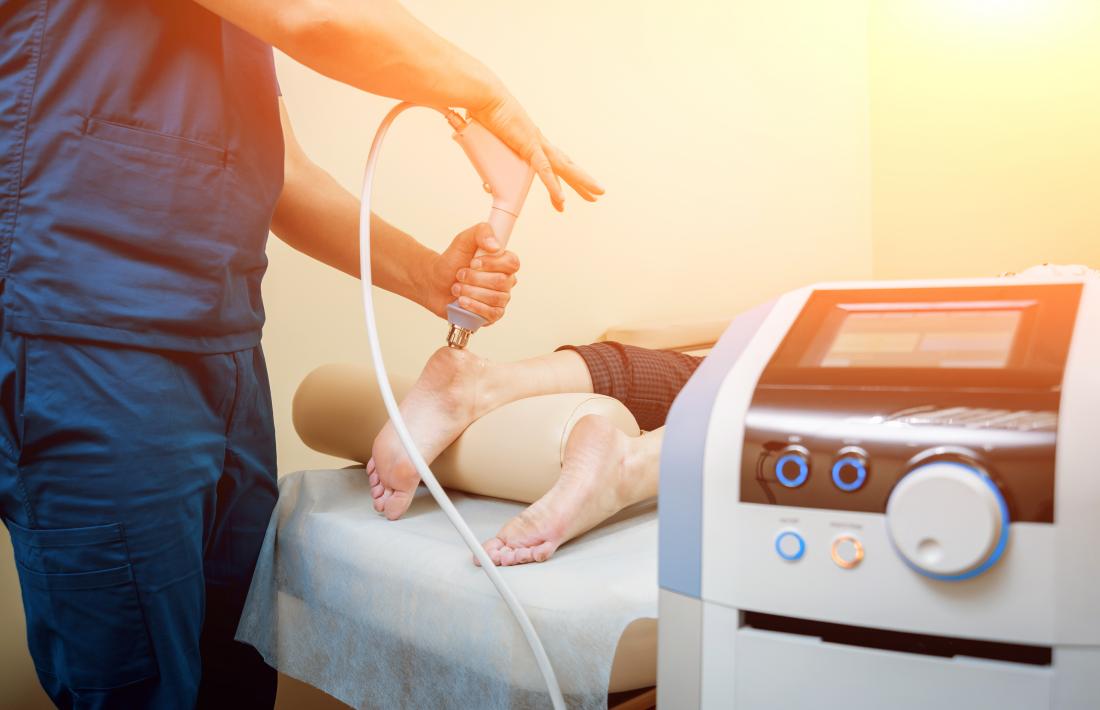How to Stop Sweaty Hands: Professional Dermatology Advice for Taking Care Of Excessive Sweating
How to Stop Sweaty Hands: Professional Dermatology Advice for Taking Care Of Excessive Sweating
Blog Article
Understanding the Origin of Excessive Sweating and Its Influence On Daily Life
While it is generally understood as a physiological action to manage body temperature, the triggers for too much sweating can vary commonly among people, incorporating not just physical variables yet likewise emotional and emotional elements. By diving right into the origin causes of hyperhidrosis and exploring its multifaceted effects, a much deeper understanding of this prevalent issue can be gotten, losing light on the complexities that individuals grappling with too much sweating browse on a day-to-day basis.
Physiology of Sweat Glands
The law of sweat manufacturing, a critical physical procedure, is mainly controlled by the activity of gland distributed across the human body. Sweat glands are classified into two primary kinds: eccrine and apocrine glands. Eccrine glands are one of the most countless and are found in mostly all areas of the body. They play a crucial function in thermoregulation by secreting a watery liquid onto the skin's surface, which assists and vaporizes cool the body down. In contrast, apocrine glands are focused in areas rich in hair roots, such as the underarms and groin, and their secretions are thicker and milklike in look.
When the body temperature level climbs, either because of physical task, high temperatures, or emotional stress and anxiety, the nervous system activates the sweat glands to produce sweat. This sweat is composed mainly of water and electrolytes like salt and chloride. The procedure of sweat production is necessary for keeping the body's inner temperature within a slim, ideal array, highlighting the vital duty gland play in human physiology.
Triggers for Excessive Sweating
In recognizing the root creates of too much sweating, it is vital to identify the triggers that can result in this physiological feedback. Too much sweating, additionally referred to as hyperhidrosis, can be triggered by various elements, both environmental and physiological. One usual trigger is emotional tension or anxiousness, which can stimulate the body's sweat glands to generate even more sweat than is essential for cooling. Physical physical effort, high temperature levels, and spicy foods are likewise understood to activate too much sweating in people vulnerable to this problem. Moreover, specific clinical conditions like diabetic issues, menopause, or hyperthyroidism can add to extreme sweating also.
Furthermore, drugs such as some antidepressants, opioids, and particular supplements can additionally serve as triggers for hyperhidrosis. Comprehending these triggers is crucial in managing extreme sweating efficiently - Sweaty hands treatment. By identifying and addressing the particular triggers that motivate too much sweating in a specific, medical care suppliers can establish individualized treatment strategies to relieve this problem and enhance the individual's lifestyle
Medical Issue Associated
Connected with extreme sweating are various medical conditions that can worsen this physiological action. One typical problem is hyperhidrosis, a condition identified by extraordinarily increased sweating that surpasses the body's thermoregulatory needs. This can show up in focal areas like the palms, soles, underarms, or face, impacting a person's lifestyle as a result of social humiliation and pain.
Moreover, endocrine disorders such as hyperthyroidism, diabetes, and menopausal hot flashes can additionally lead to extreme sweating. Hyperthyroidism triggers an overproduction of thyroid hormones, his comment is here increasing metabolic process and activating sweating.
In addition, infections like hiv, tuberculosis, and endocarditis have been connected with night sweats, a typical sign understood to disrupt sleep and affect overall health. These medical conditions highlight the diverse variety of underlying variables that can add to excessive sweating, necessitating detailed analysis and monitoring by healthcare professionals.
Psychological and Psychological Factors

Effect On Social Communications
Too much sweating can have extensive effects on an individual's capability to involve comfortably in social communications. The noticeable indicators of sweat spots or wet spots on garments can result in shame and self-consciousness, creating individuals to withdraw from social circumstances. This withdrawal can influence connections, restriction social activities, and impede expert and personal growth.

In addition, the anxiety and self-worth concerns originating from extreme sweating can affect interaction and social skills. Individuals may struggle to concentrate on discussions, join group activities, or express themselves confidently. This can result in sensations of isolation and solitude, as social links come to be testing to maintain.
Conclusion

While it is generally recognized as a physical response to manage body temperature level, the triggers for excessive sweating can vary extensively among individuals, including not only physical aspects yet emotional and likewise emotional components. By diving right into the origin creates of hyperhidrosis and exploring its multifaceted impacts, a deeper understanding of this prevalent issue can be obtained, shedding light on the complexities that people grappling with extreme sweating navigate on an everyday basis.
Physical physical effort, high temperatures, and spicy foods are also known to cause too much sweating in individuals prone to this problem. By determining and dealing with the details triggers that prompt extreme sweating in an click over here now individual, healthcare carriers can establish personalized treatment strategies to minimize this problem and improve the individual's high quality of life.
Extreme sweating can have profound effects on a person's capability to involve comfortably in social communications.
Report this page